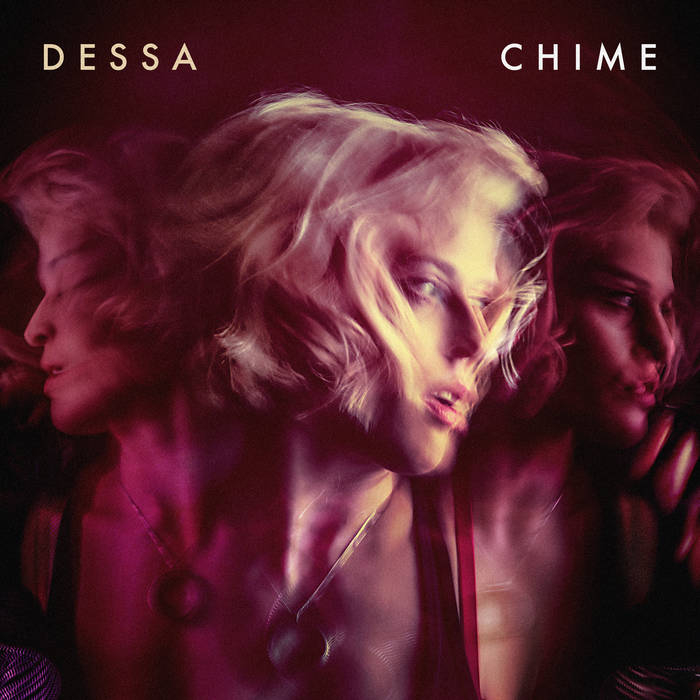Dessa - Chime
Written by Chi Chi Thalken on March 2, 2018Doomtree member/emcee/vocalist/poet Dessa has been going strong for pretty much all of the 2010s, ever since she dropped her first album, A Badly Broken Code, back in 2010. Since that time, it’s been a life of constantly touring, collaborating, writing, and creating, both as a solo artist and as part of the Doomtree crew. Now, five years after her last solo album, Dessa comes back with Chime.
Dessa is a multifaceted artist, so there are always a lot of different angles to consider whenever she does something. One of the most interesting parts of her solo career is to see where the balance lies between the side of her that is a badass emcee that came up with a rap crew, and the side of her that is a really good vocalist and wants to explore the poetry of some more traditional singer-songwriter material. On her first album, her songwriting was that of an artist coming out of a rap group that was stretching her legs in new directions as she carried songs on her own as a singer. Shortly after that album came out, she assembled a live touring band, and even went as far to re-record that album with said band. As she toured more with the band, it clearly influenced her writing going into her second album, which fell more on the singer-songwriter side of things, while still keeping some hip hop influence. Since that time, though, Dessa has worked on a lot of different projects. Doomtree released their third full-length album as a group, and along with touring both with the group and as a solo artist, performing with symphonies, doing spoken word, and working on a book (coming out later this year), we’ve seen just about every angle of Dessa these past couple of years. The question was, which Dessa were we going to get on her next solo album? Well, now that Chime is here, I can say that we get the most balanced Dessa album to date.
For Chime, there are an interesting mix of producers throwing their hat in the ring. There are her fellow Doomtree members Lazerbeak, Paper Tiger, and Cecil Otter. There are a couple of tracks produced by Chance Lewis and Anagram Norton, who answered Dessa’s call on Facebook for midtempo beats. There are a couple of tracks produced by Dessa herself, for the first time in her career. Finally, there is also contribution from Andy Thompson, probably best known for his work with Jeremy Messersmith, who helps with engineering, instrumentation, production, and anything else the album needed to come together. In less experienced hands, this could be too many cooks in the kitchen, and the album could end up sounding really disjointed. However, at this point in her career, Dessa not only knows who she is as a solo artist, she also has people such as Lazerbeak and Thompson who clearly understand what she’s all about and know how to deploy their skillsets to help her realize her vision. The result is an album that moves effortlessly from some really gentle orchestral pop to hard hitting dark electronic music, from underground hip hop to modern pop, and all while keeping Dessa’s voice front and center.
As a lyricist, vocalist, and emcee, it’s once again all about the balance with Dessa. As Dessa has been building her solo career, there were certain pressures she felt about what sides of herself she could reveal to audiences, since she wanted to be taken seriously as the only woman in a hip hop crew that was striking out on her own. Now that we’re eight years into this phase of her career, and she’s respected in so many different circles, you can really see her open up and give us the most well-rounded album of her career. The album opens with “Ride,” which sounds extremely familiar, as we get Dessa the storyteller, the narrator who walks us through this noir hip hop tale. As we continue, we get Dessa the philosopher on “Good Grief,” in which she ponders the way in which we in American culture process loss and the ends of things, bringing some of her most tender sung vocals. “5 out of 6” brings in a modern hip hop style of production with some of Dessa’s best shit-talking as she claims all of the space for her own. “Boy Crazy” might take you by surprise at first, with it’s unapologetic modern pop, especially given how cynical about love some of her past songs have been, but that’s part of the fun of where we are now. If Dessa wants to get giddy for a second, why can’t she? We also get a nice window into Dessa’s sense of humor on “Shrimp,” which starts off with her talking shit about carving out her own career niche, but ends just 45 seconds in with her giggling at her own punchline. It’s all part of who Dessa is, and this album gives us the most complex look at a very complex woman.
Chime is far and away Dessa’s best effort to date. It speaks to how hard it is not just as an artist who doesn’t fit into a box, especially a female artist, that Dessa felt the need to establish certain groundwork to be taken seriously before she could show us these other sides of her on record, whether it be her love of pop or her sense of humor. On Chime, we finally get it all, and it’s fantastic. It’s philosophical and poetic, it’s thoughtful and personal. It’s aggressive and dark, it’s slow and melancholic. It’s also fun and silly. It’s all of these things all at once. It’s Dessa.
| Title: | Dessa - Chime |
|---|---|
| Label: | Doomtree |
| Year: | 2018 |
| Rating: | 9/10 |

